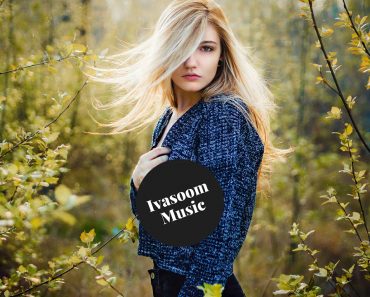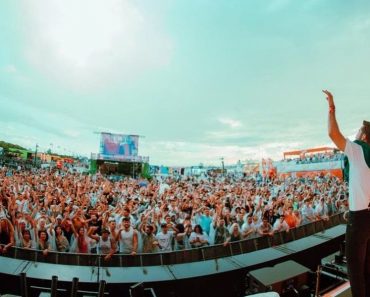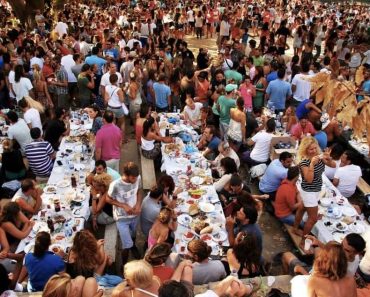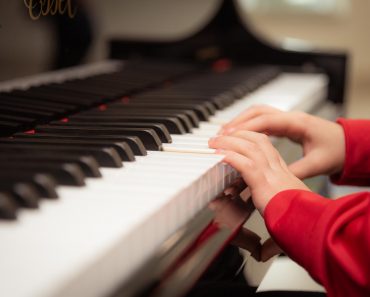BASHKIM ZENELI/ On the occasion of the National Day of Greece, March 25, the newspaper has excerpted a part from the latest book by our former ambassador to Greece, Bashkim Zeneli, Grand Master, “Troubled Friendship”, where he talks about the wedding of former Albanian national football player, Bledar Kola, with a Greek, Nadia, an Albanian-Greek wedding held in Athens in 2004.
The Ambassador describes in detail the features of Greek weddings, the enthusiasm and the Greek spirit of the celebration in them. The traditions of Greek friendship, the traditions of the Greek family where there is respect and love in marital relations, but also in parental ones, are described in just as much detail. Ambassador Zeneli also tells the surprise that the Prime Minister of the time, Fatos Nano, made to the couple who were getting married, by giving them a bouquet of flowers through him, a gift that was received with great emotion by Bledar Kola, the former national football player, as well as by the Greek bride and the entire hall.

…On my way back from Ioannina, late in the evening, my friend and well-known journalist, Ramadan Bigza, would call me. He wanted to come to the office the next day, with a friend who did not tell me his name. They came in the morning. He was with Bledar Kola, the outstanding footballer of our national football team. A very educated, serious, charming young man, always with a smile on his face, dressed with great taste. We would greet each other in a friendly manner. Ramadan Bigza had “brought” Bledar in the first days of my arrival in Athens, to meet. It had been Bledar’s wish… He would congratulate me on my assignment. I would remind Bledar of that brilliant goal he scored against Germany, in Leverkusen, tying the score until the last 2-3 minutes of the match, when the Germans scored again…
Bledari would laugh politely, while Dani would start full of passion: The great coach Zhegu was wonderful, wonderful as a person, wonderful as a footballer and wonderful as a coach… If only they didn’t feel it, but footballers like Dini rarely come… yes… oh my god… do you remember what goal he scored against Northern Ireland, do you remember… he would continue to write with admiration and adoration for the legend of our football, the unforgettable Din Zhegu… While Bledari would listen respectfully and laughing to Prof. Dan, as he called him. We would meet with Bledari on several occasions, to have a coffee or even for lunch or dinner. Anyone who knows him, cannot say otherwise than: he is a wonderful, humane, smart, honest guy!

He would often come to the embassy to greet me. Always elegantly dressed… And now that he came again with Dani, before the Olympics, it would give me even more pleasure to receive an invitation… an invitation to his wedding. I was really happy and promised him that I would come with great pleasure, thanking him in a friendly way… On several occasions of receptions or activities at the embassy, I had also met Bledari’s fiancée; a very beautiful Greek woman, blonde, smiling, proud and full of elegance and finesse in all her behavior and attitude. With Bledari they were a wonderful, noble couple, an Albanian-Greek couple, that you could hardly find a second one… They were a model! Bledari had been in Greece for over 13 years and had immediately become active with great teams like AEK; Panathinaikos, etc. He enjoyed special respect and sympathy among Greek sports fans. He was truly an example in life and an example in football. A rare and unheralded talent in our football who would start in his homeland with Beselidhje and then with Partizan and the Albanian national team.
Those who remember him cannot forget that perfect physique and that elegant run on the field… Dan Bigza would call me to tell me that Bledari would have a very beautiful wedding and would ask me: how do you say, do we sit together at the same table with Foto Strakosha and Arian Xhumbe and Bellaj? All three very big and honorable names in Albanian football! “Whomever you want to be with, Dan,” I told him, “decide for yourself.” I only knew and had a lot of friends with Foto Strakosha, a legend of our sport, an exemplary one in every way… In those days, I would talk to Prime Minister Nano about something related to the program of meetings with his European counterparts during the Olympic Games. Quite by chance, I also told him that I was invited to Bledar Kola’s wedding… he was getting married to a very beautiful Greek girl… “You did well to tell me,” the Prime Minister would say, “please take a bouquet of flowers and send it from me… write also… Hug and say hello from me.”
I had also been to 3-4 Albanian-Greek weddings… Very beautiful weddings with great enthusiasm. In general, Greeks, both in the city and in the countryside, and especially on the islands, have very beautiful weddings. They make them big and make a fuss about their preparations. In the cities, and especially in Athens, in addition to tradition, they also give them class… While in the villages they are more natural, more traditional. For a wedding, which is normally a special joy in the family, everyone gets involved, with cousins, aunts and uncles.
But they deal especially and with “omnipotence” with everything: women! They invite a lot; they do not leave anyone from the family and relatives uninvited, whether they are there or not; even abroad in Germany or America! They remember until the last moment that no one is left uninvited. Greek weddings, with hundreds of guests, are big weddings, not simply because of the number of participants. They are big in their own world, in their naturalness. More than class, more than appearance for appearance’s sake, “greatness” for “greatness”, Greek weddings have life, they have soul, they have explosion, they have songs and dances that are enjoyed by everyone from the oldest to the youngest. Greeks express a special joy at weddings; not only the families that organize them enjoy them, but everyone. Everyone dances, everyone claps in rhythm. There is a lot of shade, even when they are unbridled.

Men and women are one and do not point fingers at each other for “excesses”. They drink wine and ouzo, they raise endless toasts, in and out of turn. There is no rest, no calm. There is only a heated atmosphere from beginning to end. They kiss and hug their wives, their cousins, their friends… It is not “rage”, it is only joy! Everyone is on the track, without any “cheer” because most are clearly overweight… This, nowhere, the Greeks have no problem with! They live life as they are. They do not pay much attention to diets… The Greeks know very little about diets. They live life like no one else!
With optimism and enthusiasm. Everyone feels, in a way, carefree; carefree of the “protocol” of such occasions. They have come for a wedding. No one tries to maintain “gentlemanly” manners. They come euphoric from wine or ouzo, but you get “longing” to see someone drunk. And at this point, the women are very strict. They give a stern look to the men who are overdoing it and they… become sober. In addition to the couple or even their parents, the guests also get up from table to table to greet and raise a toast. This whole atmosphere of joy, with unbridled laughter, loud talking, teasing, shouting, never gets out of control; everything is restrained. But the song and dance stay alive until morning.
Greek weddings excite you, Greek weddings have light, they have simplicity, they have a life that merges with the solemnity that is never lost. People don’t notice anything about each other; neither how they are dressed, nor how the women are decorated, nor what goes well and what doesn’t… It’s another matter what they can gossip about after the wedding. Older men, especially those from the suburbs, are more “traditional”, more careful in maintaining the “rules”, but they don’t intervene to establish order. They come dressed in a “komboloi” and carry a chain or something like a tespie in their hands at all times. They somewhat preserve the esnaulek, but they laugh and greet the younger ones. In the dance, they get up more when they ask for it in the hall. And there they become “Zorba”! They show a “capadail” and pride that befits them in all those lively movements and, especially when they carefully, very lightly sit down to hit the ground with the palm of their hand, surrounded on all sides by the wedding guests who accompany them, sitting on their knees, with rhythmic applause, with respect and gratitude to the one who is dancing. I would not have believed them, until I learned by chance in a conversation with Greek friends, that until 1983, in Greece, the dowry (dowry) was required by law! The father had to make (and still does today, when this law is no longer in effect) a dowry (Prika) for the girl.
Normally, the dowry includes a house or at least an apartment. Not for someone who absolutely cannot afford it. This is quite natural today. When the marriage is within the same village or city, the father and brothers help their newlywed daughter and sister so that they do not lack, if possible, anything for a normal and happy life. The apartment or apartment that the daughter receives as a dowry from her father remains the daughter’s property during the marriage and, in a way, also serves as social security for the newlywed. The groom has always been obliged, regardless of his education or wealth, to work hard to bring the necessary income to the family, so that she does not lack anything. Years or even decades ago, parents, especially mothers, wanted to marry their daughters as close to them as possible. And mothers, even in the groom’s house, in one way or another, would “interfere”, not to say “would seek to make the law”, in the name of making the daughter as happy as possible. Of course, today many, many things have changed in these aspects. But Greek women, in a way, as before, at least within the four walls of the house, have the former all-powerful “matriarchy”.
They still make the law today, they do it very naturally, they command and direct everything. Even in agreements about something family, the last word is women’s. Men know this, they see it, they feel it. They obey even when they do or really get angry with hand movements. And once the lady “shouts”: kace more… ella more… the men obey! And by writing like this, I do not mean that Greek women do not respect men. No, they respect them, but they are always triumphant. An “agapi mu” makes Greek men feel good. And “agapi mu” is everyday. This is also part of the tradition, because, especially in big cities, life itself, relationships, have a different course. Not like in Western Europe, where in most cases marriage and family are somewhat cold, too regulated by rules and customs. No, in Greece, as in our region, it is different.
However, in Greek life, in Greek families, there is a lot of love, love in marital relationships, love for parents, for children, for friends. Friendship is highly valued as a tradition. In ancient times, the Greeks would say: whoever seeks friends without mistakes, remains without friends! Or even today, especially in the suburbs, the Greeks, just like we once did, have the expression, or, better, the philosophy that “before you buy a house, look at the neighbors…”. Let’s go back to Bledar Kola’s wedding with the beautiful Nadia… On the wedding day, together with Engjëllushen, we first went to the “Ajo Georgiu” church, in Melisa, where all the religious rites and practices would be performed. Many guests had come, Greeks and Albanians. A truly beautiful and solemn ceremony. In the evening, we would head to the wedding venue, in Nisis, in the center of Kifsia. It was one of the most famous venues in Athens. It was filled with pools, fountains, statues, olive trees, and incredible greenery throughout its entire space.
We greeted many Albanian acquaintances, friends of the Kola family, but also various Greeks. Bledari’s wedding was also attended by his football friends and football specialists from sports newspapers. The wedding hall was beautifully decorated, in a triumphant and very friendly whiteness. Nadia and Bledari, a very charming couple (not that this is not said about every couple), holding hands, laughing and full of joy, would triumphantly enter the hall, to bring over 400 people to their feet, with applause… A wonderful Albanian-Greek couple, a very beautiful Albanian-Greek bride. The parents of both parties were already happy. The large presence of athletes would give the wedding an Olympic spirit, on its eve.
That wedding had everything from the Olympic peace, because even the decor expressed much of the grandeur and nobility of antiquity. It was built in such a way as to show that the Olympics were just around the corner. Greek deputies and politicians, numerous football officials, numerous cameramen and photographers had also come to the wedding. Engjëllushena and I would stand up to give our gift to the couple and the bouquet of flowers from Prime Minister Nano. One of Bledari’s friends read Fatos Nano’s dedication. And Bledari, with great emotion, would say two thanks: “I never thought that Albania would forget me, that it has been almost 14 years here… tonight my homeland seems closer to me than ever… Thank you to Albania, for respecting me on the most beautiful day of my life…”. Bledari and Nadia’s parents were truly very emotional.
The whole hall. Some journalists, friends of Bledari, wanted to find the opportunity to say something to them… At our table, where we were sitting with Foti and Ariani and Dani, many Greeks invited to the wedding would come to clink glasses. Among the footballers, at our table there would be more talk about sports. And Ramadan Bigza could talk about sports for hours, without stopping. With great passion and a phenomenal memory. He would bring the beautiful goals scored 20-30 years ago to the table as if they had been scored yesterday. And he would not fail to list the great masters of Shkodran football. But he would not fail to talk with special admiration and respect for the distinguished sports journalist Besnik Dizdari: “I can find, Mr. Bashkim, a better sports journalist than Besnik today… I can find… But he is an extraordinary archive…”
Greek national football team players would also come to greet us at the table. I am very pleased, Mr. Ambassador, that you honored your compatriot so much… He is a very good friend of ours… thank you. Dani told me their names, but now I regret that I don’t remember them… Foti Strakosha, with tears in his eyes, laughing, would tell me about an Albanian, sitting at a table not far from us, who had gone to the couple’s table with his parents and had placed a bottle of raki in front of them. I have it from Albania, it is homemade… he had told them.
We all laughed. We parted from Albanian and Greek friends and acquaintances of that wonderful wedding in the early hours of the morning. How much had been sung that evening; Greek and Albanian songs, as in a competition. And there had also been many dances… the Albanians danced the Greek dances very beautifully, together with the Greeks, to the sounds of the music that accompanied them… Bledari would come to meet me at the embassy only after two days and would bring me an album with the wedding photos. I thanked him very friendly… And as I wrote these lines, I would see those photos again, but also some that Dani had taken and given me… I don’t know how much I have described that wedding so beautiful. It was a wedding, like all beautiful weddings.
But it was even more beautiful, perhaps, because it was an Albanian-Greek wedding, in an atmosphere of friendship between Greeks and Albanians… And so wrote the Albanian press in Athens, but also the Greek sports newspapers… Even if I left something unsaid from that wedding, it doesn’t matter much today… What matters is that what I wrote, I wrote with love and gratitude for our Bledari and the Greek Nadia.





